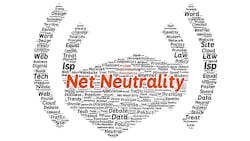FCC Issues a Net Neutrality Plan to Keep the Internet 'Fast, Fair and Open'
The top U.S. telecom regulator proposed Wednesday to regulate broadband Internet service providers as "public utility" carriers, in a renewed effort to enforce "net neutrality" rules.
Federal Communications Commission chairman Tom Wheeler unveiled the plan which aims to prevent Internet providers from playing favorites or blocking some services or allowing others to pay for "fast lanes."
The new proposal comes a year after a federal court struck down the FCC neutrality rules, saying it lacked the authority because Internet providers were not "common carriers" under U.S. telecom law.
The plan, which is expected to unleash a fresh legal and political battle, aims to resolve the impasse by reclassifying Internet service providers as regulated entities under the 1934 Telecommunications Act.
The Internet Association, which includes Google, Facebook and Netflix, welcomed the plan.
"We thank Chairman Wheeler for including equal treatment of wireless and fixed broadband connections in his proposal," association president Michael Beckerman said.
"There is only one Internet, and users expect that they be able to access an uncensored Internet regardless of how they connect."
The new initiative comes after the January 2014 ruling by a federal appeals court which struck down the FCC's 2010 rules on net neutrality.
But even if the new proposal is adopted, a fresh legal challenge is likely.
Verizon, which filed the earlier legal challenge, quickly criticized the new Wheeler plan.
"Heavily regulating the Internet for the first time is unnecessary and counterproductive," said Verizon vice president Michael Glover.
"It is unnecessary because all participants in the Internet ecosystem support an open Internet, and the FCC can address any harmful behavior without taking this radical step."
Copyright Agence France-Presse, 2015
About the Author
Agence France-Presse
Copyright Agence France-Presse, 2002-2025. AFP text, photos, graphics and logos shall not be reproduced, published, broadcast, rewritten for broadcast or publication or redistributed directly or indirectly in any medium. AFP shall not be held liable for any delays, inaccuracies, errors or omissions in any AFP content, or for any actions taken in consequence.
